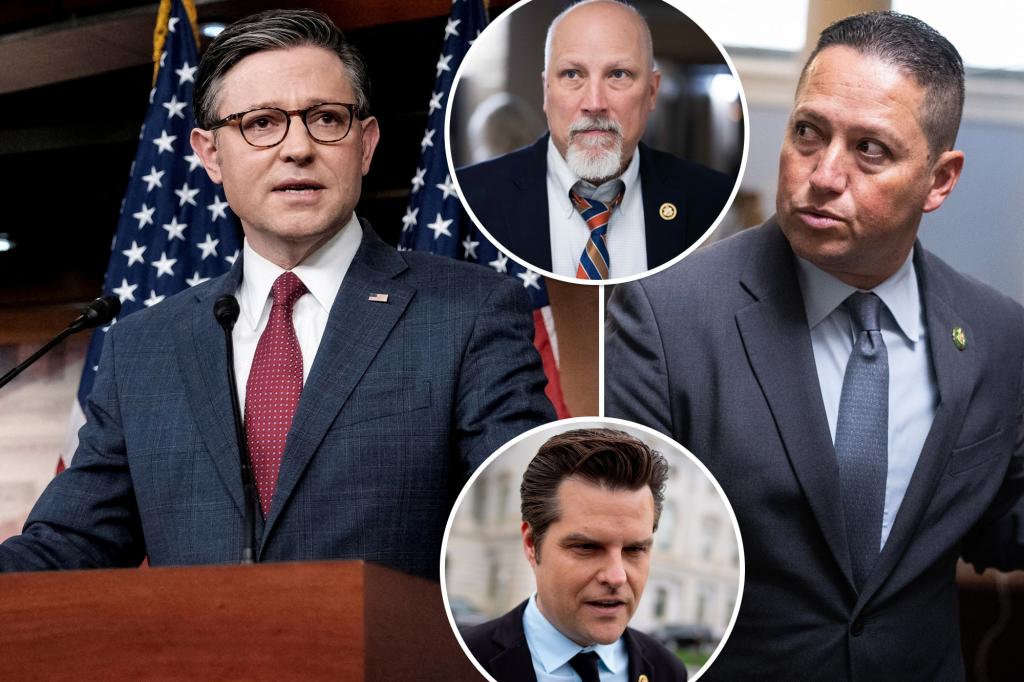Rep. Chip Roy (R-Texas) expressed his anger over House Speaker Mike Johnson appearing at a fundraiser with Rep. Tony Gonzales in San Antonio, following Gonzales’ comments calling GOP hardliners in Congress “real scumbags.” Roy, a member of the conservative House Freedom Caucus, was particularly upset with Gonzales’ live television rant where he made disparaging remarks about GOP members like Rep. Matt Gaetz and Bob Good, and accused Good of endorsing a neo-Nazi. Roy felt that people standing up for the country were being attacked.
Gonzales’ comments on CNN’s “State of the Union” about his fellow GOP colleagues caused an uproar, with accusations against Gaetz for involvement with minors and drugs, and claims against Good for supporting a known neo-Nazi. Johnson’s appearance at the San Antonio fundraiser was reportedly part of a long-planned event coinciding with the National Republican Congressional Committee’s spring dinner in Dallas, which raised nearly $300,000 in donations. Rep. Gaetz criticized the gathering, questioning the high cost for donors to attend and raising concerns about Ukraine funding.
Gonzales is set to face off against digital content creator Brandon Herrera, known as “The AK Guy” on YouTube, in the May 28 Texas GOP primary. Herrera described the race as a David vs Goliath fight, where Gonzales and the establishment are raising millions of dollars through big donors, PACs, and private parties, while Herrera is focused on grassroots campaigning and direct engagement with the people. The situation exemplifies the clash between the establishment and grassroots approaches within the Republican Party.
Roy’s frustrations with Gonzales’ comments and Johnson’s support for him reflect broader tensions within the GOP. The divide between more moderate establishment figures and conservative hardliners like Roy and members of the Freedom Caucus highlights ongoing debates within the party about its direction and priorities. The upcoming Texas GOP primary will be a litmus test for these tensions, with Gonzales representing the establishment wing and Herrera embodying the grassroots movement, showcasing the varying approaches to party politics within the state.
The controversy surrounding Gonzales’ comments and the subsequent fallout among GOP members underscore the challenges facing the party as it navigates internal divisions and prepares for upcoming elections. The clash between traditional fundraising methods and grassroots campaigns further complicates the landscape, with divergent strategies employed by different candidates. The Texas primary will serve as a test case for how these dynamics play out within the party and may have broader implications for the future direction of the GOP in Texas and beyond.
Overall, the interactions between Roy, Johnson, Gonzales, Gaetz, and Herrera illustrate the complex dynamics at play within the GOP as it grapples with internal divisions, differing ideological perspectives, and strategic choices for future elections. The Texas primary will offer insights into how these tensions are resolved and what direction the party may take moving forward. The outcome will not only impact the Texas GOP but also have implications for the broader Republican Party as it seeks to navigate a changing political landscape and define its identity in the post-Trump era.













